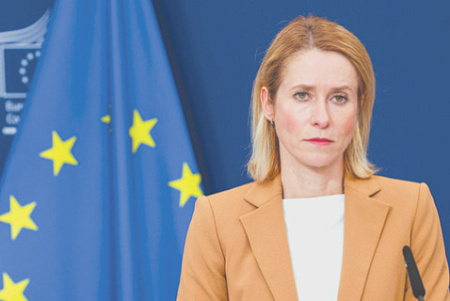
European Union foreign ministers have launched a series of emergency talks this week, driven by a single pressing concern: an upcoming meeting between U.S. President Donald Trump and Russian President Vladimir Putin, scheduled for August 15 in Alaska. The frantic diplomatic effort underscores deep anxiety in Brussels that a deal concerning the war in Ukraine could be struck over Europe’s head, fundamentally reshaping the continent’s security landscape.
The high-stakes summit is currently the most critical foreign policy issue for European leaders. While the U.S. and Russia will lead the discussions, any potential agreement on the Ukraine conflict would heavily depend on the EU and NATO for implementation, as these bodies provide the bulk of Kyiv’s military and financial support. A consensus has formed among the EU’s leading nations that Ukraine’s fate must not be decided by Washington and Moscow alone, a principle they are now scrambling to defend.
However, a unified European front is complicated by internal divisions. While most member states are wary of a bilateral deal, some leaders, notably Hungarian Prime Minister Viktor Orbán and Slovakian Prime Minister Robert Fico, are seen as more open to an agreement with Russia on almost any terms to end the conflict. The prevailing fear among the majority, however, is that a supposed peace plan could conceal a trap that undermines European interests and sovereignty.
In an effort to forge a common position, the EU’s foreign policy chief, Kaja Kallas, convened an online meeting of foreign ministers, which also included her Ukrainian counterpart, Andriy Sybiha. Kallas later articulated the bloc’s core demand, stating, “Any agreement between the U.S. and Russia must involve Ukraine and the EU, as this is a matter of Ukrainian and European security.” She stressed that the EU’s pursuit of a resolution should not be mistaken for a readiness to make one-sided concessions to Russia.
A crucial moment in this diplomatic flurry will arrive on Wednesday, when both Trump and Ukrainian President Volodymyr Zelenskyy are set to hold a video conference with EU leaders, including European Commission President Ursula von der Leyen. Despite the urgency, officials in Berlin have indicated that the EU may not finalize its official position and proposals for the Trump-Putin summit until Friday, leaving little time for strategic alignment.
Amid the talks, the EU is also making clear it will not approach the summit from a position of weakness. On Monday, the European Commission announced the release of another €1.6 billion in aid to Ukraine, generated from the profits of frozen Russian central bank assets held within the Union. The move serves as a tangible signal of the EU’s enduring commitment to Kyiv and a reminder of its significant financial leverage.
Meanwhile, a cautionary note has emanated from Washington. In a recent interview, U.S. Vice President J.D. Vance warned against inflated expectations for the summit’s outcome. He suggested that any potential deal would require painful compromises from all sides, stating that “no one will be too happy” but that the ultimate goal is to ensure that “they will live in relative peace and the killing will stop.” This message appears to be a deliberate effort to manage expectations, not only in Moscow and Kyiv but also among anxious allies in Europe.
